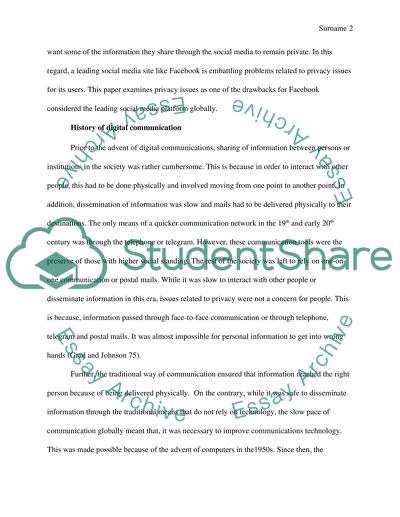Cite this document
(“Facebook and Privacy Issues Essay Example | Topics and Well Written Essays - 2500 words”, n.d.)
Retrieved from https://studentshare.org/media/1635373-facebook-and-privacy-issues
Retrieved from https://studentshare.org/media/1635373-facebook-and-privacy-issues
(Facebook and Privacy Issues Essay Example | Topics and Well Written Essays - 2500 Words)
https://studentshare.org/media/1635373-facebook-and-privacy-issues.
https://studentshare.org/media/1635373-facebook-and-privacy-issues.
“Facebook and Privacy Issues Essay Example | Topics and Well Written Essays - 2500 Words”, n.d. https://studentshare.org/media/1635373-facebook-and-privacy-issues.


